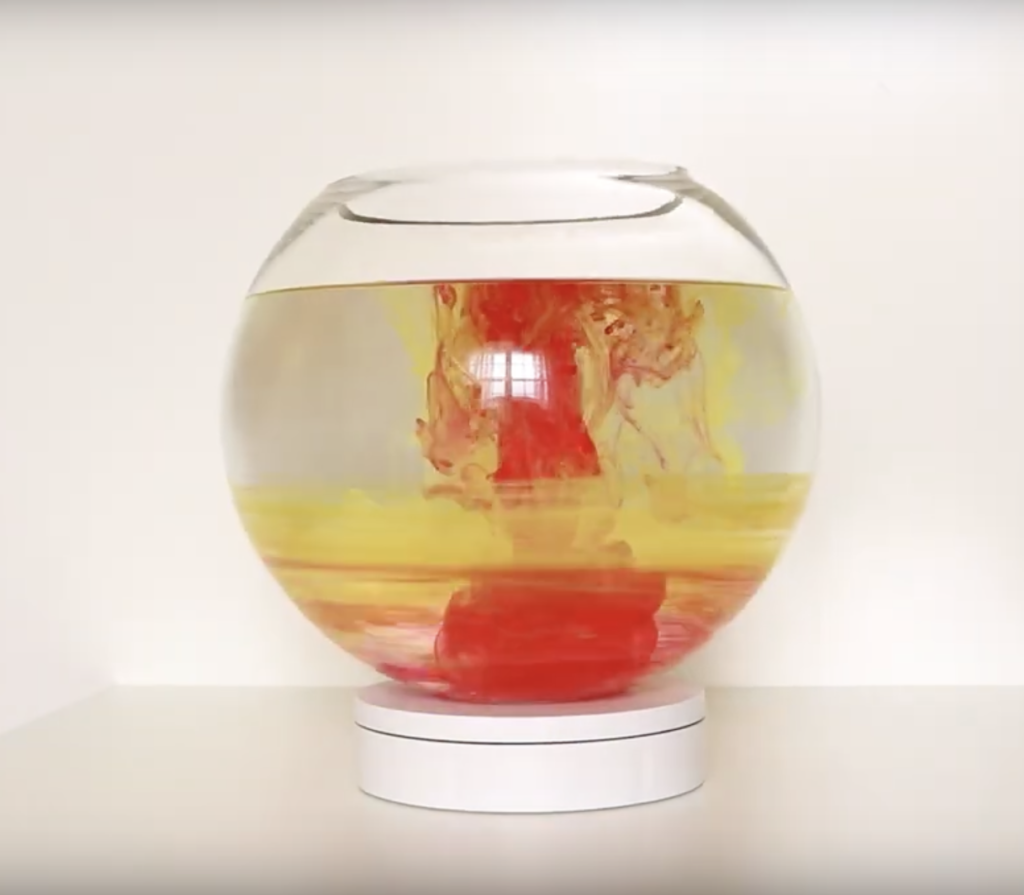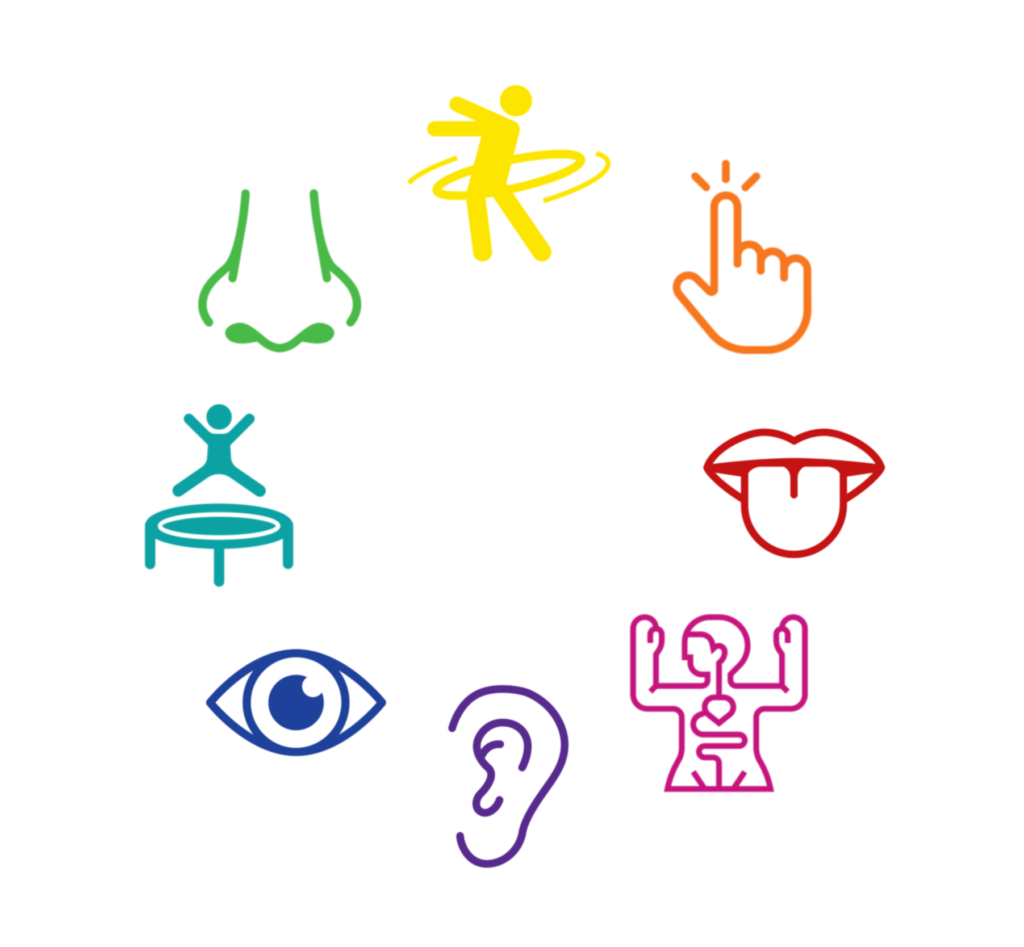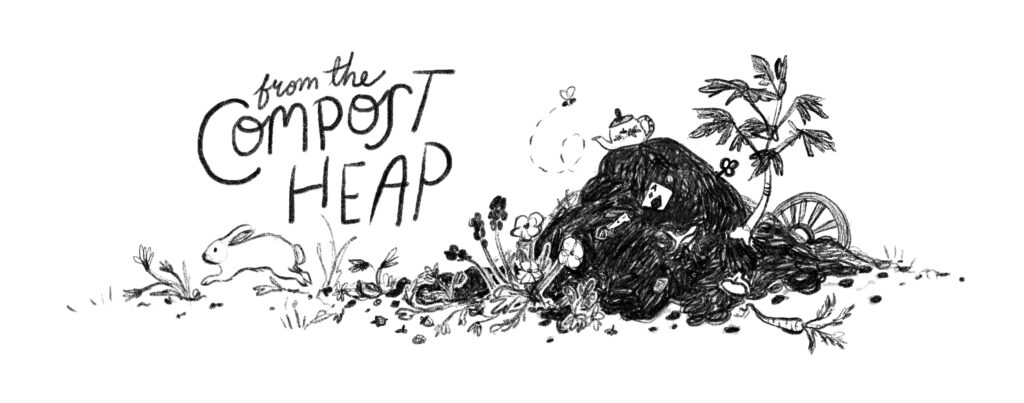
-
Support Tools for Autism, ADHD & Sensory Processing
Read more: Support Tools for Autism, ADHD & Sensory ProcessingI’ve put together some of our favorite support tools for autism & neurodivergence: fidgets, timers, art supplies (art is so beneficial for self regulation), and books.
Self Regulation Tools
The remaining links point toward Amazon for now because it is the most accessible source for most people. Please consider that many autistic and neurodivergent people rely on Amazon for products they need.*
We need to support our own nervous systems so we can make the changes we want to see in the world.
If you prefer to shop elsewhere you are invited to do so. Simply use these product pages as jumping off points to find similar items in indie shops. If you purchase through these links I receive a very tiny referral fee.
Harkla Sensory Diet Workbook
If you’re new to the idea of sensory regulation this is a great resource. It is geared toward kids, but much of it is also applicable to adults. Our needs don’t disappear – we just get older. (Affiliate Link)

Further Reading
Check out my picture book How it Feels to Me.

Or browse below to shop more of my favorite books about autism, sensory processing, and neurodivergence.
FOOTNOTES
* Reasons why autistic people rely on Amazon may include: overstimulation when shopping, chronic illness, under-employment, or rural locations where products are simply not available.
-
Autism 101 for Parents
Read more: Autism 101 for ParentsI’m an autistic adult and parent of an autistic child. After years of internalizing my neurodivergent traits as “flaws” my child’s diagnosis changed everything for me. Learning about how autistic brains are wired helped me begin to reframe autistic traits as differences and find ways to better support both of us.
Here is what I wish I’d known about myself growing up.
“On the Spectrum”
When we talk about autism or neurodivergence we often mention a spectrum. Sometimes this is misunderstood as a range of intensity from “more” to “less.” But you cannot be “more” or “less” autistic or neurodivergent.
I made a zine to illustrate the complexity and nuance of being “on the spectrum.” You can read it here.
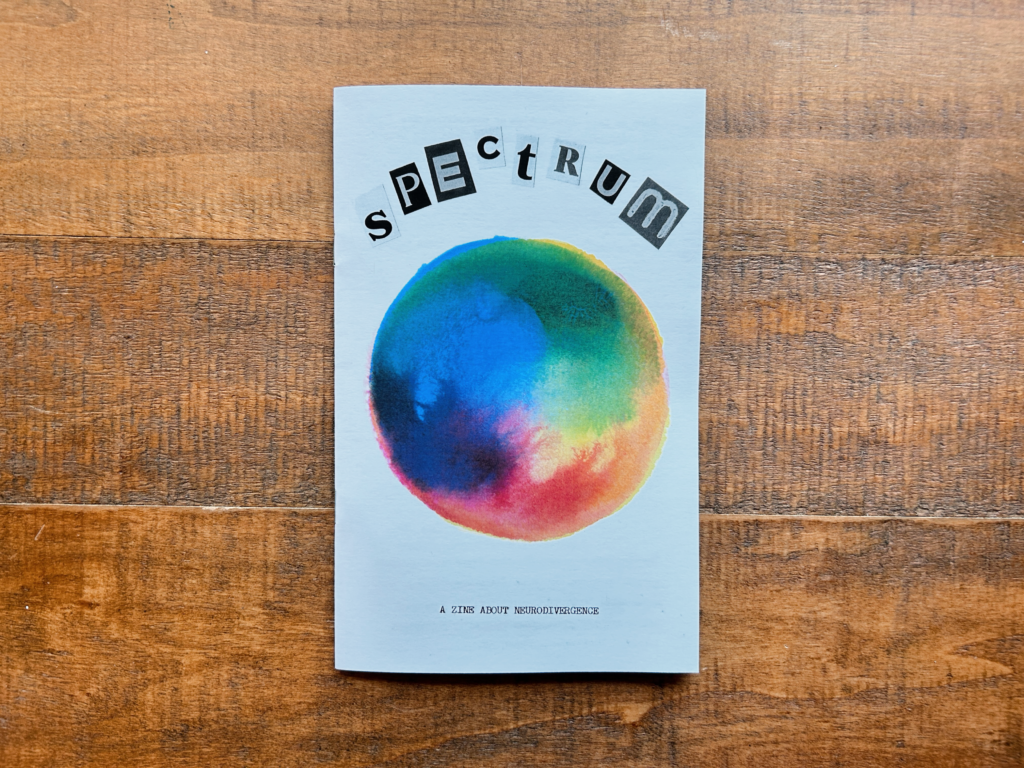
Celebrating Autism
On a personal note, I made this video to celebrate my child’s autism diagnosis and share the news with our family. I really recommend framing a diagnosis of autism or ADHD as a positive milestone and celebrating it as such. We celebrate the anniversary of our diagnosis each year as our Neurotype Day.*
High Masking
It’s really important that parents consider whether they might be neurodivergent themselves. Autism and other types of neurodivergence are genetic. If you child is on the spectrum there is high chance one or both parents are also.
Even if you don’t have enough traits for a diagnosis recognizing and supporting your neurodivergent traits is really critical.
Neurodiversity Affirming Professionals
Here are some therapists I have enjoyed learning from.
- Andi Putt (for autism and speech therapy content)
- Alexandria Zachos (for delayed speech and gestalt language processing)
- The Autism Handbook (invaluable for communicating to teachers)
- The Meaningful Speech Course (a neurodiversity affirming approach to speech therapy)
Neurodiversity Affirming Education
Daniella (@autism.conmigo) is an Autistic + ADHD parent of 2 autistic kids with a doctorate degree in education. She offers 1:1 support and consultations.
I’ve worked with Daniella personally and highly recommend her for support home educating or advocating for your kids within traditional schools.
Support Tools & Further Reading
Click here for links to my favorite fidgets, sensory reset tools, and books.

How it Feels to Me
You may also be interested my picture book, How it Feels to Me – an introduction to sensory processing for readers of all ages.

Return to the
Neurodiversity Affirming Resource Library
FOOTNOTES
* Shout out to my friend Hayley Dunlop for coining this.
-
Autistic Adults
Read more: Autistic AdultsDo you identify with some autistic traits, and want to learn more?
Here are some resources I’ve gathered specifically for you.
Blog Posts
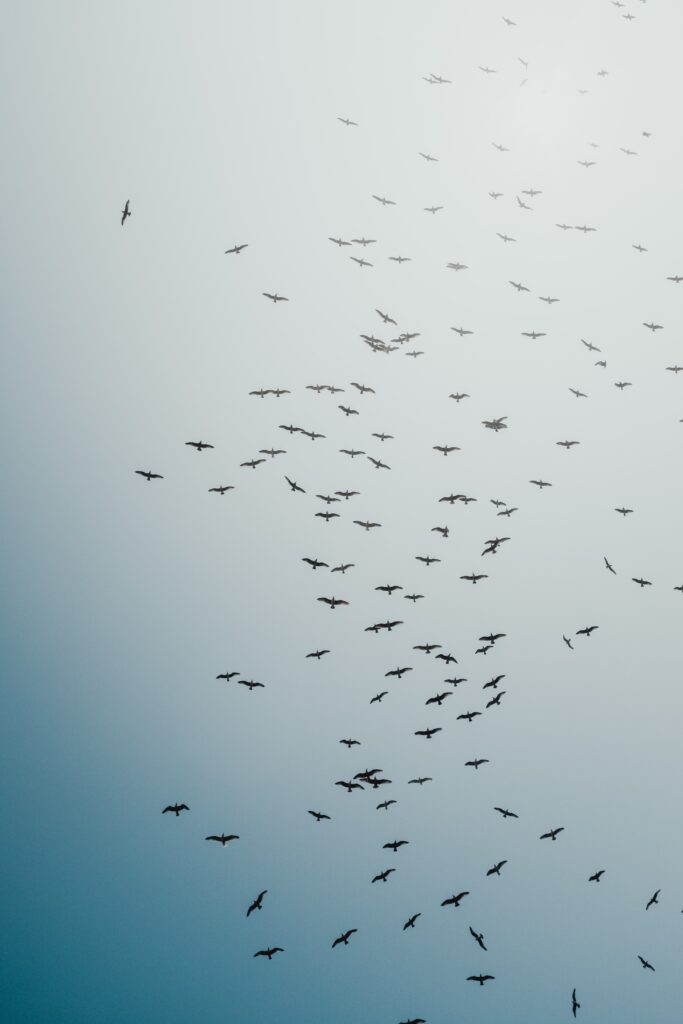
Please stop calling yourself an hsp 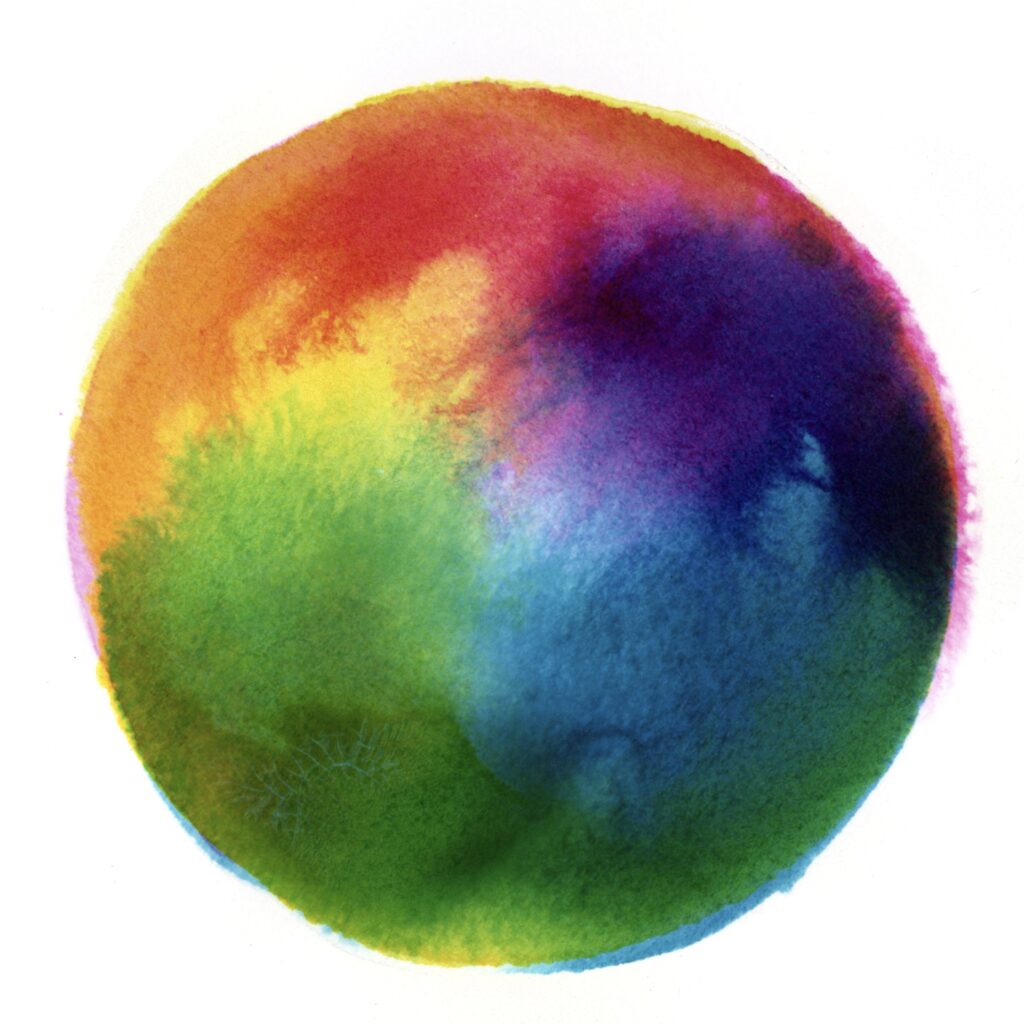
What is autism? 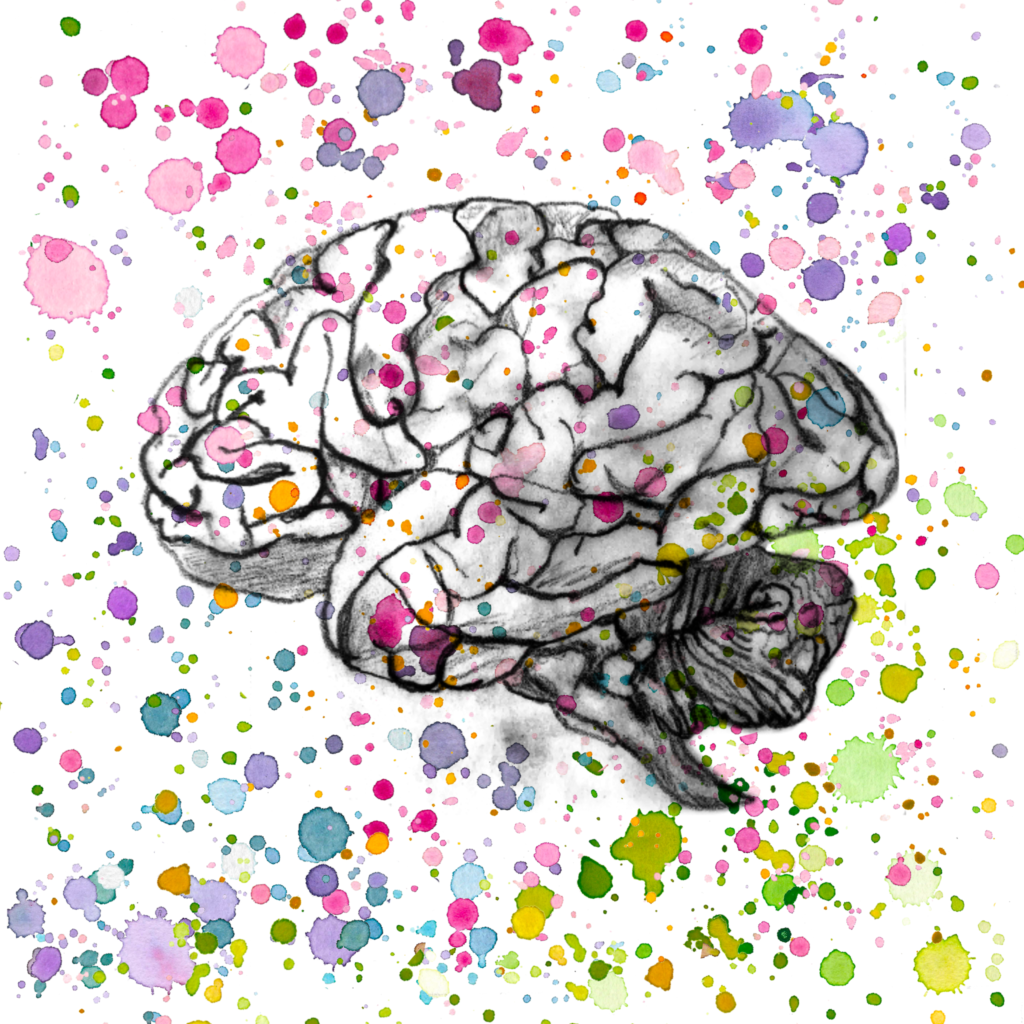
What is neurodivergence? 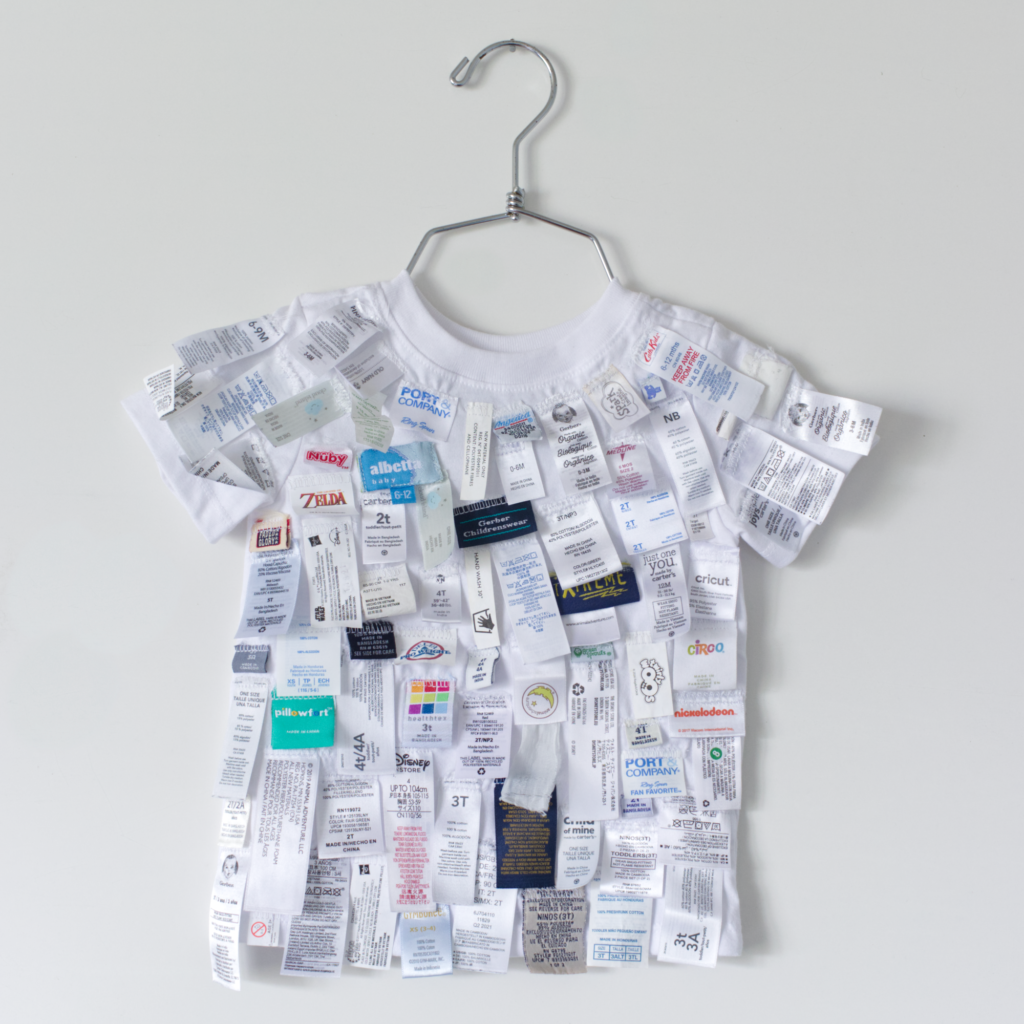
WHAT IS OVERSTIMLUATION? “On the Spectrum”
When we talk about autism or neurodivergence we often mention a spectrum. Sometimes this is misunderstood as a range of intensity from “more” to “less.” But you cannot be “more” or “less” autistic or neurodivergent.
I made a zine to illustrate the complexity and nuance of being “on the spectrum.” You can read it here.

Podcasts
Katherine May on Glennon Doyle’s podcast We Can Do Hard Things, Episode 220
This is a great place to start breaking down stereotypes. Please remember when listening that every autistic experience is unique (…we don’t all see rainbows.) 🌈
And a few more podcasts.
- “What if we assumed our needs were reasonable?” Katherine May & Sara Tasker chat about neurodivergence on Hashtag Authentic.
- Hannah Gadsby chats about autism on We Can Do Hard Things.
- Alexandria Zachos explains autistic language development and delayed echolalia on Two Sides of the Spectrum.
- Sara Tasker & Katherine May discuss hyperfocus on How We Live Now.
Blogs & Websites
- From Burnout to Balance by Louise Lucas
- Alice Bramhill AuDHD Therapist
- Purposeful Connection by Hanna Keiner
- Steph Jones Autistic Therapist & Author
- Neurokind (Art & Writing by Neurodivergent Artists)
- Katherine May’s Autism Resource Page
Books & Support Tools
I’ve collected some of our favorite fidgets, regulation tools, art supplies and books here.
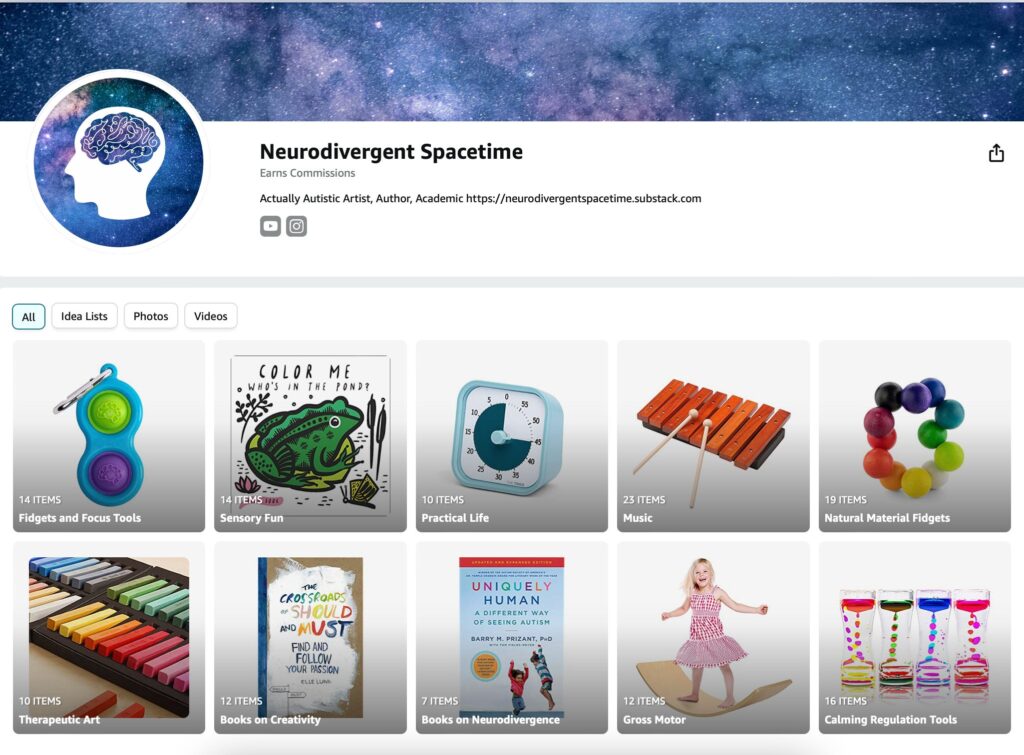
How it Feels to Me
You may also be interested my picture book, How it Feels to Me – an introduction to sensory processing for readers of all ages.

Return to the
-
What is Overstimulation?
Read more: What is Overstimulation?I made this video to share my experience of overstimulation.
I also find that my autistic traits are almost always rooted in sensory differences. So this a helpful place to start when discussing autism. Overstimulation can also be experienced by ADHDers.
(There’s also a shorter 30 second version here.)
Return to the
-
How it Feels to Me
Read more: How it Feels to MeHow it Feels to Me is a picture book about neurodiversity for all ages.
This book explores the science behind how we each experience the world. Readers will learn about differences in sensory experiences and better understand themselves and others. This book is written and illustrated by two autistic creators making the book they wish they’d had growing up.

Concept art for how it feels to me Learn more…
This self published book is fully funded and in the proofing stage. If you’d like to know more about the inspiration behind this project you can watch our crowdfunding video here.
Support the project by preordering a limited edition hardcover.
Or choose to donate a copy to a school, library, or a neurodivergent family in financial hardship.
Meet Sarah & Gracie

Sarah Shotts (author) is an autistic interdisciplinary artist and author of Discover Your Creative Ecosystem. Their writing has also been published in Ought: The Journal of Autistic Culture. Sarah earned a Masters degree in Applied Drama from Goldsmiths University of London and a bachelors in Fine and Performing Arts at Mississippi University for Women (MUW.)
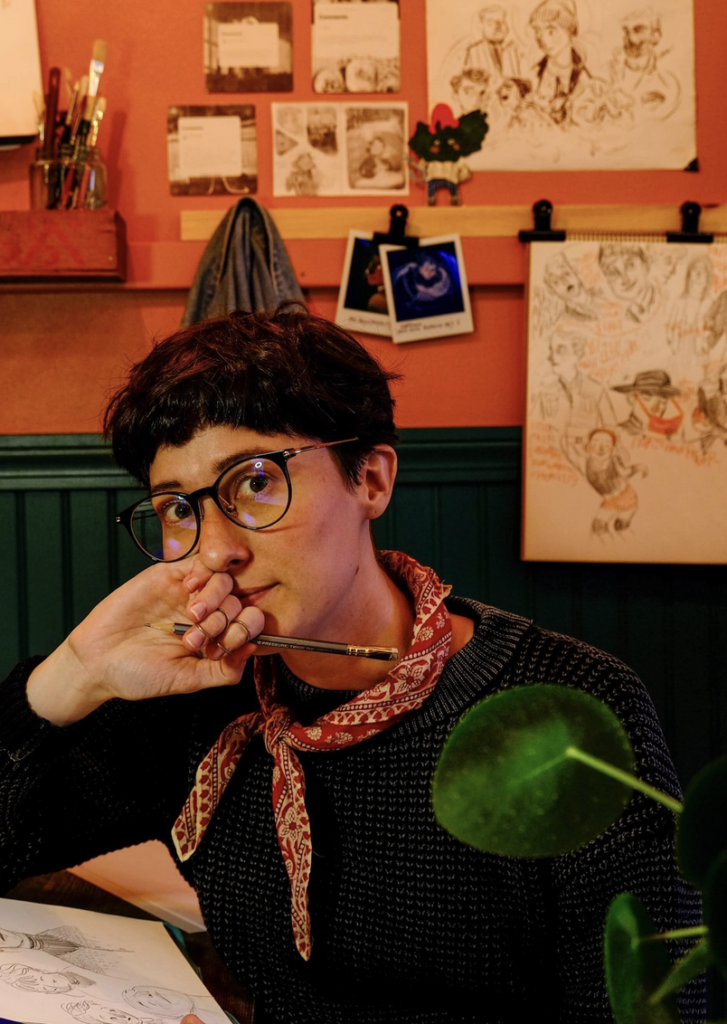
Gracie Klumpp (illustrator) Gracie is an autistic illustrator and writer who lives in an old Airstream, and never runs out of stories. She’s not always the best at talking about them—but that’s why she’s always creating them. Gracie studied Digital Media Arts: Animation at Huntington University, and has used her animation chops to inform her illustration work since graduating. Gracie makes storytelling magic in all sorts of mediums, and doesn’t really mind which she uses so long as it serves the story best.
Related Posts
-
What is neurodivergence?
Read more: What is neurodivergence?The word neurodivergence is made of two parts. Neuro meaning brain. And divergence meaning to differ. Neurodivergence means that your brain processes the world differently.
Every human is unique, but most brains have certain things in common.
Neurodivergent folks experience the world differently. Our brains are processing information in different ways. There are lots of types of neurodivergence including dyslexia, dyscalculia, synesthesia, OCD, dyspraxia, etc. Each with specific ways the brain differs from most people.
Choose Your Adventure
This is a micro post. Continue learning about neurodivergence below.
Or browse all of the posts I’ve written about neurodivergence.
